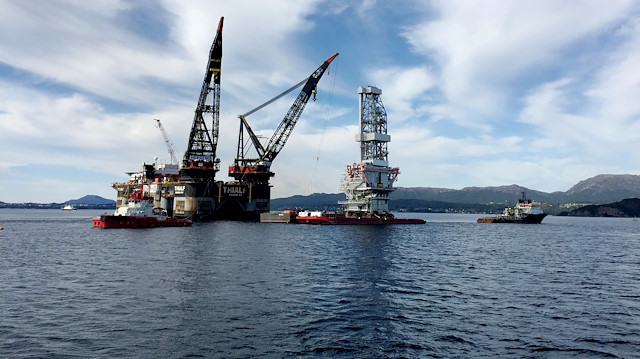
Norway is planning a major expansion of oil exploration in the Arctic, despite commitments to tackling global warming and opposition from environmental groups.
Minister of petroleum and energy Tina Bru said on Wednesday the expansion was needed to protect jobs and generate wealth.
The government will auction up to 136 new oil exploration blocks in a major licensing round, with 125 of those in the Arctic Barents Sea, a relatively unspoiled corner of the planet.
"We need new discoveries to uphold employment and value creation," Bru said in a statement.
Norway is western Europe's biggest oil producer and has built the world's biggest sovereign wealth fund, worth more than $1 trillion, on the back of its oil wealth.
It has signed up to the Paris agreement to tackle global warming and, although not a member of the European Union, has pledged to reduce carbon dioxide emissions in line with the bloc. However, this does not cover emissions produced by fossil fuels extracted from its territory and then used by others.
"This clearly shows that the Norwegian government's actions are not based on what is scientifically required to address the climate crisis," Greenpeace's head in Norway, Frode Pleym, told Reuters.
"Norway has failed to take the climate crisis seriously."
The licensing round, Norway's 25th, had been delayed by a long-running debate over how far north the oil industry should be allowed to drill, culminating in a compromise that left significant room for more Arctic licences.
The new round could open eight regions of the Barents Sea that have been unavailable for exploration, each with a range of blocks, and one region of the Norwegian Sea.
Unlike annual awards in mature areas, which hand out permits adjacent to existing fields, the so-called numbered licensing rounds are less frequent and designed to open up frontier acreage for exploration.
"These are the areas with the greatest probability for making large new discoveries," the energy ministry said.
Oil firms, which must commit to a certain level of drilling, tend to pick fewer blocks than the overall acreage made available by the government, however.
A hearing on the scope of the round will be held until Aug. 26, after which the number of permits could be cut, followed by awards in the second half of 2021.


